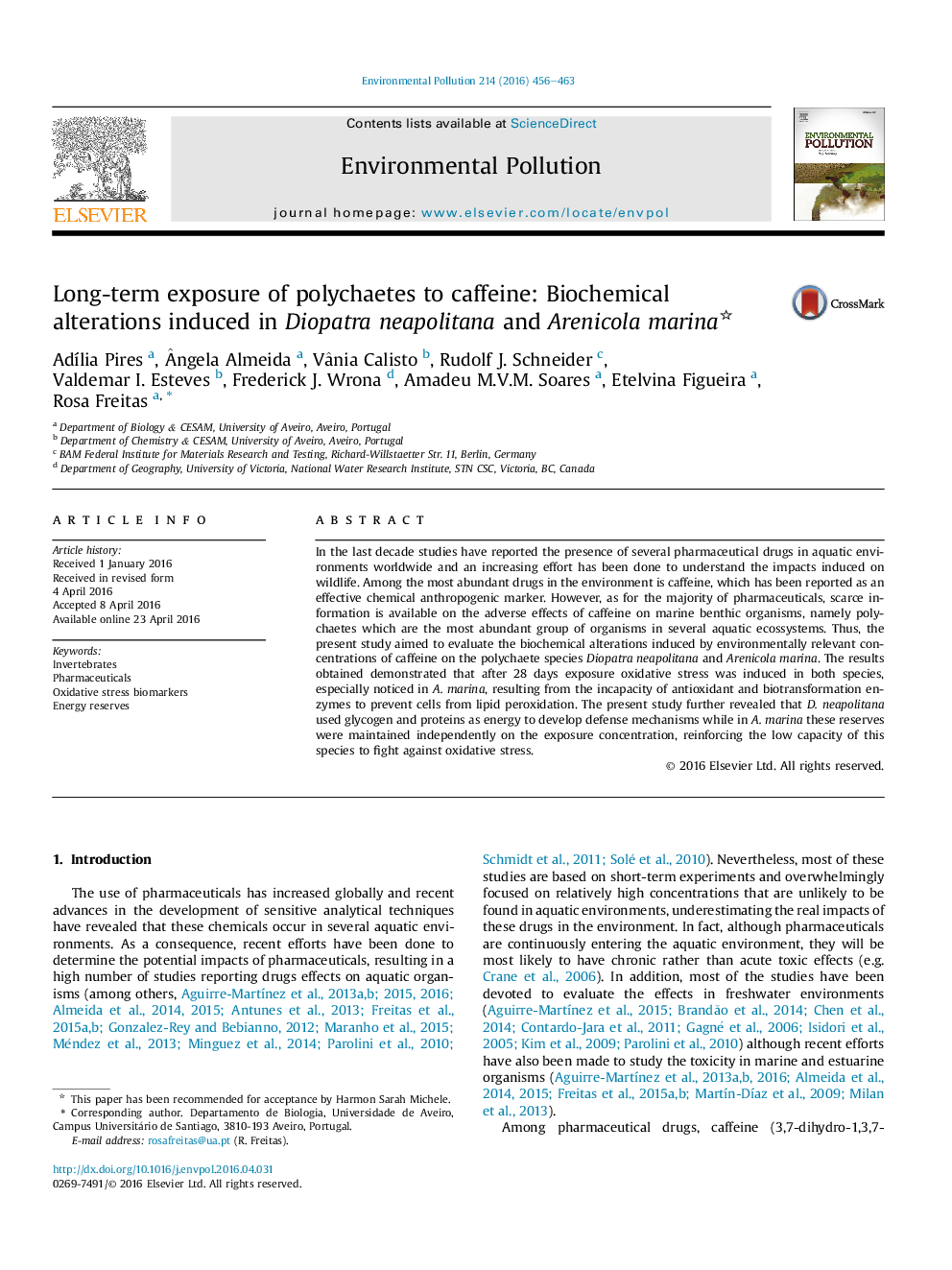| Article ID | Journal | Published Year | Pages | File Type |
|---|---|---|---|---|
| 6315308 | Environmental Pollution | 2016 | 8 Pages |
â¢Caffeine induced oxidative stress on D. neapolitana and A. marina.â¢In both species LPO was higher at the highest exposure concentration.â¢Antioxidant and biotransformation enzymes were not able to prevent cellular damage.â¢D. neapolitana used glycogen and protein as energy to fight against stress.
In the last decade studies have reported the presence of several pharmaceutical drugs in aquatic environments worldwide and an increasing effort has been done to understand the impacts induced on wildlife. Among the most abundant drugs in the environment is caffeine, which has been reported as an effective chemical anthropogenic marker. However, as for the majority of pharmaceuticals, scarce information is available on the adverse effects of caffeine on marine benthic organisms, namely polychaetes which are the most abundant group of organisms in several aquatic ecossystems. Thus, the present study aimed to evaluate the biochemical alterations induced by environmentally relevant concentrations of caffeine on the polychaete species Diopatra neapolitana and Arenicola marina. The results obtained demonstrated that after 28 days exposure oxidative stress was induced in both species, especially noticed in A. marina, resulting from the incapacity of antioxidant and biotransformation enzymes to prevent cells from lipid peroxidation. The present study further revealed that D. neapolitana used glycogen and proteins as energy to develop defense mechanisms while in A. marina these reserves were maintained independently on the exposure concentration, reinforcing the low capacity of this species to fight against oxidative stress.
